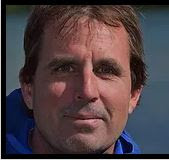Far be it from me to poke anybody's bear. But I did have a lot of fun writing the short essay that turns up under the above title in the latest Canadian Issues. Here's how it begins . . . .
We oldest Canadian Boomers, born in the later 1940s, came
of age in the 1960s. Entering our twenties, we discovered strength in
numbers. When the Beatles sang, “You say you want a Revolution,” we said: yes! Yes,
we do! We were going to change the world. We heard Bob Dylan. The times they
were a changin’. We heard Timothy Leary: Turn on, tune in, drop out. Never
trust anyone over thirty. Some of us hitchhiked to San Francisco with flowers
in our hair. Meanwhile, during Expo ’67, the world came to Montreal. The year
after that, hundreds of thousands of Boomers became eligible to vote in a
federal election for the first time. We created Trudeaumania. We turned a provocative
intellectual into a political rock star. Trudeau the Bold stared down rock-throwing
separatists, removed the state from the bedrooms of the nation, and began
turning Canada into a global beacon of tolerance and diversity.
***
Where earlier generations could look only to those who
preceded them, we Boomers revelled in a vast peer group. We gazed out at an international
youth culture. As teenagers, we had caught James Dean in Rebel Without a Cause and Marlon Brando in The Wild One. A decent, law-abiding citizen asks the Brando
character, “What are you rebelling against?” From his motorcycle, the leather-jacketed
Brando responds: “What have you got?”
Along came the swivelling Elvis, and then Motown, Baby Love, soul music, Midnight
Train to Georgia, and through it all the transcendent Dylan. He went
electric but never stopped protesting. I
Ain’t Gonna Work on Maggie’s Farm No More. From our American cousins, we
learned how to protest: civil rights, ban the bomb, women’s liberation. The Sixties
blasted into the early 1970s. The youngest Boomers were children, but the insurgents were eighteen to twenty-seven.
In his book Sex in
the Snow: Canadian Social Values at the End of the Millennium, sociologist
Michael Adams calls us Autonomous Rebels. We were numerous enough to create our
own heroes. Those we accepted as “tribal elders” included the nationalist
Pierre Berton (b. 1920), who attacked organized religion in The Comfortable Pew; political
journalist Peter C. Newman (b. 1929), who took a scalpel to The Canadian Establishment; and Mordecai
Richler (b. 1931), a literary superstar who rejoiced to puncture pretension and
political correctness. Oh Canada, Oh
Quebec. Yet probably our all-time favorite elder was Leonard Cohen (b.
1934), the romantic troubadour who insisted that Magic Is Alive while
celebrating sex and revolution.
By the 1980s and ‘90s, the Autonomous Rebels were producing
leaders. Maude Barlow (b. 1947) fought first for women’s rights, then against too-free-trade
with our mighty neighbor, and finally, globally, to halt the sale of water
rights. Linda McQuaig (b. 1951) decried the rich and reactionary so effectively
that one of them suggested she should be horsewhipped. More recently, Naomi
Klein, who wasn’t born until 1970, has emerged as an international leader in
the Boomer tradition. She is spearheading the charge against globalization and increasing
inequality. What are we rebelling against? What have you got?
***
Back in 1960s Canada, female Boomers learned from such Americans
as Betty Friedan and Gloria Steinem, who emulated the civil-rights movement to
launch “women’s liberation.” Feminist elders in this country included journalist
Doris Anderson (b. 1921) and Flora MacDondald (b. 1926), who came to political
prominence in the mid-1970s. Fiction writer Margaret Laurence (b. 1926) wrote
powerful novels and battled fundamentalist Christians, and led us in
recognizing that Canadian writers constitute “a tribe.”
Feminism soon found younger champions: Margaret Atwood (b.
1939), Joni Mitchell (b. 1943), Judy Rebick (b. 1945). Women gained editorial
control of Canadian book publishing, among them such figures as Anna Porter,
Louise Dennys, Phyllis Bruce, Iris Tupholme, Cynthia Good. Boomers like Maude
Barlow created their own platforms, and today new revolutionaries are reshaping
the feminist landscape, among them Irshad Manji (b. 1968), Karen Connelly (b. 1969),
and thirty-something Lauren McKeon, whose first book is F-Bomb: Dispatches from the War on Feminism. . . .
***
Lots of great yadda yadda yadda. And here's how the piece ends:
But wait. While in the United States, angry white guys contrived
to elect a self-indulgent whacko as president, Canadian Boomers led the way in
driving Harper and his cronies from the corridors of power. Sociologically
speaking, the Autonomous Rebels and Connected Enthusiasts made common cause long
enough to elect Trudeau the Son as prime minister. Justin smokes weed, practices
yoga, and marches for Gay Pride. We’ve spirited the Sixties into the 21st
Century. Our work here is done.









